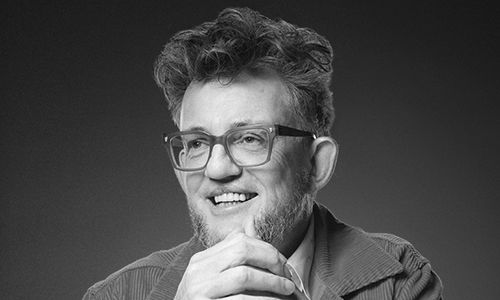If you want to improve the managers in your business, says Michael Bungay Stanier, do more coaching. You might think coaching equals being soft, but you couldn’t be further from the truth.
“When I’m asked to talk about my philosophy of coaching I’ve got two words, and the words are Fierce Love.”
Michael wrote the book on coaching, literally. The Coaching Habit is the biggest book on coaching this century. He is the go-to guy for anything coaching related – his 7 questions format has revolutionised coaching, and while we don’t necessarily talk about those today, they do feature.
In this enlightening episode all about coaching, Michael, who’s also founder of Box of Crayons – a learning and development company helping organisations shift from advice-driven to curiosity-led, talks about his latest book – The Advice Trap.
This conversation is full of fantastic insights from Michael on how to be a better coach, how to be a better leader, and how to encourage coaching inside your organisation. We hope you enjoy it as much as we did.
On today’s podcast:
- The Coaching Habit
- The need for social contracting when hiring a coach
- The principles of coaching
- Why ‘and what else?’ is the most powerful question to ask
- The power of staying curious a little bit longer
- The advice trap
Michael Bungay Stanier wrote the book on coaching, literally. The Coaching Habit is the biggest book in coaching this century. He is the go-to guy for anything coaching related.
“When I’m asked to talk about what my philosophy of coaching is, I’ve got two words, and the words are fierce love.”
His 7 questions format has revolutionised coaching, his latest book, The Advice Trap is all about changing the way you lead by staying curious a little bit longer. His company, Box of Crayons, helps organisations transform from advice-driven to curiosity-led.
How does Michael approach coaching?
“For me, part of our coaching is all-in. I have got your back and I believe in the best of you. I’m here to make you as awesome as I think you can be. The fierceness is what cuts through the softness. I’m not going to butter you up or lie to you. I’m going to do what I can to push you to the edge of who you can be.”
Social contracting
Whenever you start coaching, whether you’re the coach or the coachee, Michael advises you to set up a social contract. As well as talking about what you’re going to be working on i.e. why are you hiring a coach? You also need to talk about how you’ll work together, in particular, how are you likely to screw this up? Because your relationship will go off the rails.
“It’s really worth having that conversation to go ‘look, these are my patterns about how I undermine my good intentions. What are your patterns, and how will we be aware of those and manage those?”
If you’re trying to stay curious a little longer when you’re coaching, use the 7 questions in The Coaching Habit book to help guide you.
Why stay curious
The ability and power of staying curious a little bit longer isn’t intrinsic in most people. We are taught to believe that we can only add value if we have the answer. That the only way to stay in control is to have the answer. That the only way to maintain your status is to have the answer. But that’s not true. There is so much power in saying ‘I don’t know’ and staying curious.
How do you sell the idea of not being the one in control, of not having the status, of not being the smartest person in the room? How do you make a case that by giving up a little of these things is worth it for them?
Research suggests that if you can manage curiosity, you push responsibility and accountability to the appropriate place in your team. Doing this means you won’t be overwhelmed and overburdened by taking on too much responsibility. By passing the onus on to the right people, they can own the right amount of responsibility. Leaving you to focus on the more important things.
“Curiosity will help you be more focused about what’s the real things that we need to solve.”
If you are more coach-like as a leader, you’ll develop a team who are more confident, competent, autonomous and self sufficient. You’ll be able to focus more on the work that needs to be done. And in the end, you’ll have more impact and work less hard, but make more of a difference.
“Most of the time people don’t ask questions that they don’t already know the answer to. Meaning they have almost zero curiosity.”
The advice trap
Michael says there’s nothing wrong with advice, advice is a key part of how people learn, how we progress, how civilisation continues to evolve.
The problem with advice is that we tend to have an advice monster inside of us, preventing us from staying curious a little bit longer.
“The advice trap is this deeper dive into behaviour change. And it centres around this idea of your advice monster.”
According to Michael we all have three drivers, three egos:
- Know it all
- Save it all
- Control it all
And these are the drivers that keep us defaulting to giving advice, having the answer, providing the solution.
The problem with these drivers is that they tend to result in leaders working too hard and not having enough impact.
“You know, that sums up probably the conversation I have with most MDs and CEOs or business leaders – they’re trying to find time to be more strategic. but the behaviour has to start at the top and then it’ll cascade down.”

